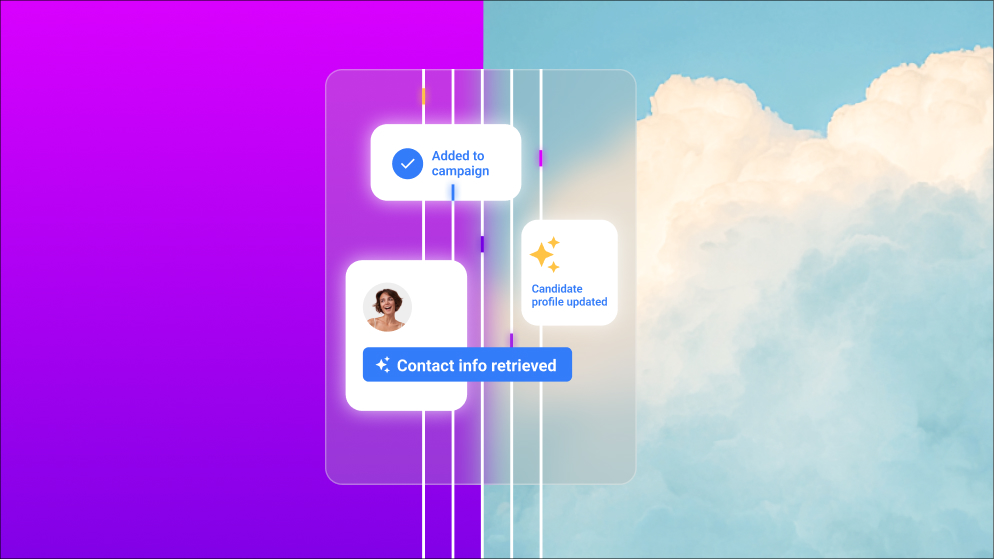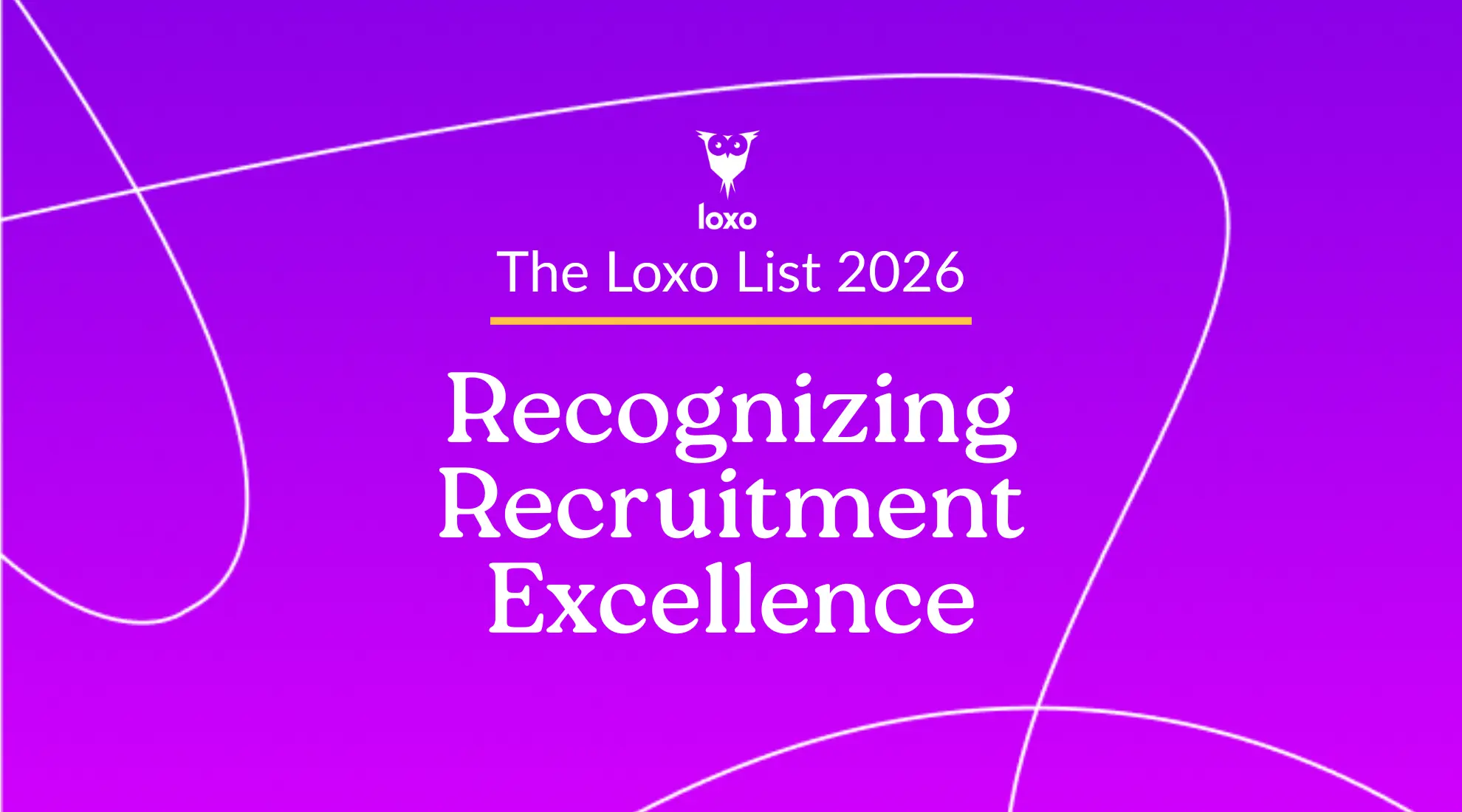AI Business Development for Recruiters
As recruiters, the challenge of winning more business can often feel daunting. Your workflow is already multi-faceted, and you're already juggling multiple plates. Add in the crazy 2024 market (with all of its unprecedented changes and rapid evolutions and so on) and it all just feels a bit...much. So maybe business development for recruiters isn't the most popular topic on the internet — but it's extremely topical.
But there's some good news:
- Recruiters are natural bizdev superstars. You've got the basic skillset already — we've just gotta tailor it to the need at hand, AKA winning your more business.
- Loxo is bringing you a series of bizdev-focused content. We'll dive into all things business development for recruiters, featuring a slew of big names in the space — people who have created and perfected winning formulas that you can easily incorporate today.
With that in mind...
Recently, we had Kyle Coleman, Global VP of Marketing at ClickUp, on the Becoming a Hiring Machine podcast to share his insights on how recruiters can leverage AI for business development, revealing a treasure trove of actionable tips that can revolutionize your recruitment approach. Kyle is an incredible resource when it comes to effective outreach, building stronger messaging, and audience/market research.
At Loxo, we understand that adapting existing strategies can significantly enhance your success rate in whatever you do — including your standard recruitment outputs and in your bizdev efforts. In fact: innovation without re-inventing the wheel is basically the driving force behind our Talent Intelligence Platform.
All of that to say: these skills and strategies are ones you can incorporate into your workflow in multiple ways — we encourage you to get creative!Okay, let's get into it.
Bridging Sales and Recruitment: The Overlap in Business Development
We need to start things off by addressing the elephant in the room.Sales and recruiting? Not so different after all. This is good news for recruiters who are looking to start adding some bizdev into the mix.Kyle agrees, and starts us off by addressing a common misconception: the separation between sales and recruiting.
"A lot of the principles we're talking about here are principles that have been extremely successful on the biz dev side, the sales side, prospecting side," Kyle explains.
The core task in both fields is the same—getting someone's attention and compelling them to take action. This principle has been responsible for generating hundreds of millions in revenue and billions in market cap for Kyle's companies.
Kyle emphasizes that recruiters need to understand the account they are working with deeply. This goes beyond knowing basic facts about the company.
"You need to understand the macro trends that are happening in that industry and why that account is uniquely suited to take advantage of those trends," he notes. Thorough research at the account level is essential for creating impactful messaging.
The Four Pillars of Effective Messaging in Recruitment
Kyle outlines the four pillars of effective messaging: account research, persona research, personal research, and value proposition. These components form a Venn diagram where their intersection is where powerful messaging happens.
Account research
This involves understanding the company at a granular level, including industry trends and unique challenges the company faces.
Persona research
Recruiters must go beyond job titles and responsibilities. Kyle stresses, "You need to understand the metrics they are accountable for and the internal politics and organizational structure."
Personal research
This is about understanding the individual. "Personalization is about their work history and connecting the dots on how your value prop aligns with that history," says Kyle.
Value proposition
Your value proposition must be tailored, precise, and connected to the insights gathered from the first three pillars.
Creating High-Impact Outreach for Candidate and Client Engagement
Kyle highlights the importance of the first line in your outreach email.
"People see your name, the subject line, and the first 18 or so words of the email," he explains.
This first line must showcase the research you've done, making it relevant to the recipient."Saying something like 'as a CMO who came up through SDR' is way more interesting because at least I know you've looked at my career journey," Kyle elaborates.
He also recommends using the PS line for personalization. While the main content of the email should focus on hyper-relevance, the PS can include personal touches, such as a shared interest or a noteworthy hobby. This approach shows that you have done your homework without deviating from the main business message.
Harnessing AI for Recruitment Efficiency
Kyle acknowledges that traditional training for SDRs and salespeople often involves mundane and time-consuming tasks, leading to inconsistent application of principles.However, AI can transform this process."The reason I'm bullish on AI-powered SDRs is because now AI is very good at those research steps," he says.
AI can codify best practices, conduct research, and save immense amounts of time.However, Kyle warns against fully automated AI systems that remove the human element. "You can't strip the humanity out of your process," he asserts. AI should handle the heavy lifting, getting you 80% of the way there, but the final mile — adding the human touch — remains critical.
AI-Driven Productivity Gains for Business Development
In the realm of business development, AI doesn't replace jobs but increases productivity. Kyle explains that in sales development, AI has allowed one SDR to support more account executives. He envisions similar productivity gains in recruiting, enabling recruiters to place more candidates per month.
"The power of this is that the people who do the volume stuff and completely AI recruiting will get bad candidates," Kyle notes.High-quality, personalized outreach driven by AI will attract the best talent.
Codifying Recruitment Processes with AI Tools
Learning how to effectively prompt AI is challenging, akin to learning a new language. Kyle advises focusing on your domain expertise and processes.
"The true transformational value is taking your domain expertise and using purpose-built software to codify that with AI," he says.
At Loxo, we echo Kyle's sentiment. Leveraging AI in recruitment doesn't mean replacing recruiters but empowering them with tools to be more effective, efficient, and impactful. By adopting these strategies, you can revolutionize your business development efforts and stay ahead in the competitive recruitment landscape.
Ready to start leveling up your business development game? Loxo's Talent Intelligence Platform has the only Sales CRM designed specifically for business development for recruiters.
Ready to shape the future?
Your job is placing the best talent in the roles that will define their careers, their lives, and our future. Our job is making it easier for you to do it.



.png)

